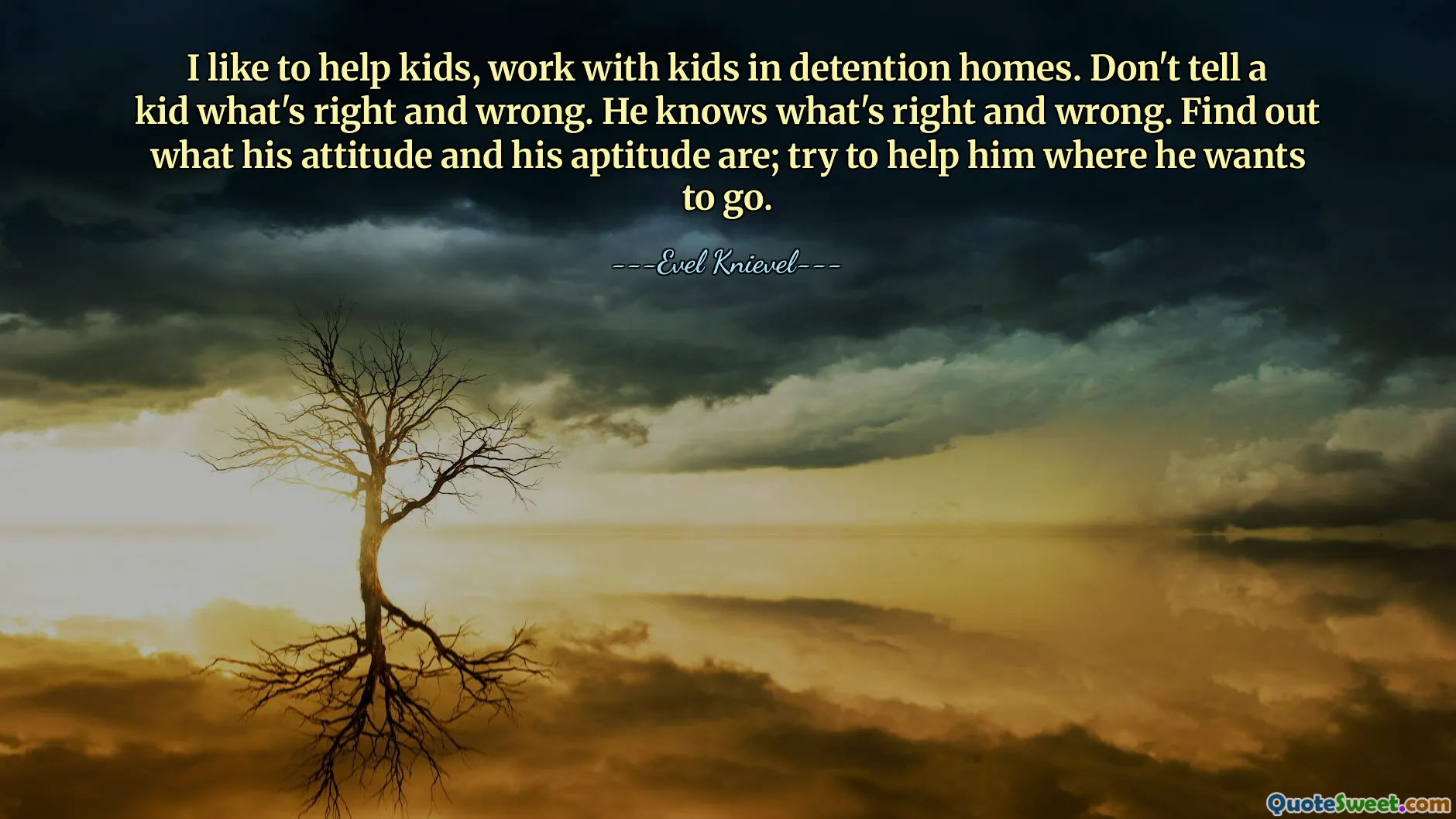
I like to help kids, work with kids in detention homes. Don't tell a kid what's right and wrong. He knows what's right and wrong. Find out what his attitude and his aptitude are; try to help him where he wants to go.
This quote underscores the importance of understanding and respecting a child's inherent judgment and individuality. The speaker advocates for a supportive approach rather than a didactic one, emphasizing the value of listening to a child's perspective and recognizing their internal sense of morality. Instead of imposing rules from outside, the focus is on identifying their unique attitude and natural abilities—aptitude—and guiding them toward a future that aligns with their personal inclinations. Such an empathetic approach fosters trust and encourages self-awareness, which are crucial for meaningful growth, especially in challenging environments like detention homes. It highlights the significance of tailored guidance over rigid discipline, acknowledging that young people are often already equipped with an innate understanding of right and wrong. The idea challenges traditional authority models, inviting us to see children as active participants in their own development rather than passive recipients of adult-imposed judgments. This perspective can lead to more effective rehabilitation and education by empowering youth with the respect and understanding they deserve. It reminds us that nurturing a child's innate strengths and attitudes, rather than simply correcting their mistakes, is fundamental for fostering genuine change and personal development. The approach also emphasizes the importance of patience, compassion, and insights into individual personalities in helping youth find their way. Such mindset can significantly impact their future, promoting resilience and a sense of agency.
---Evel Knievel---







